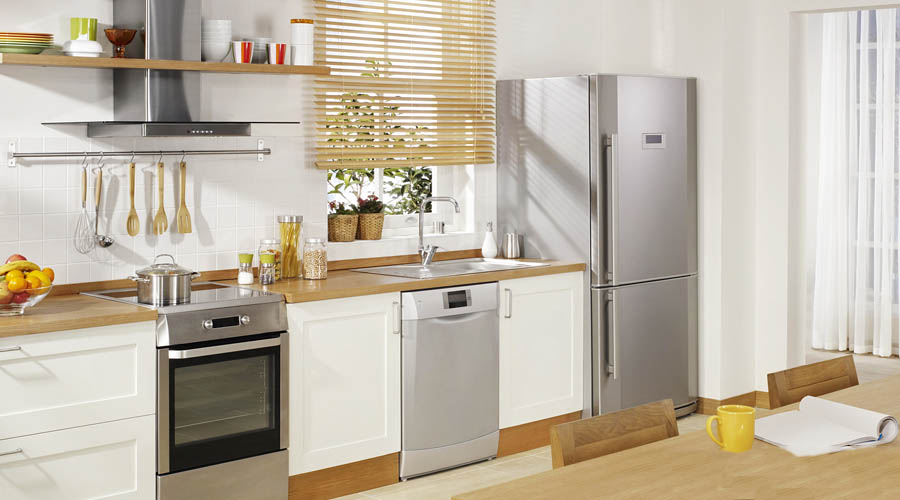Solar Power Requirements: How Many Watts to Run a House in Canada?
When making decisions about your solar power requirements in Canada, such as whether to be on the grid or off-grid, it helps to know what your total power consumption is going to look like.
Sure, you can look at your current electricity bill and any renewable energy you’re already using. But that doesn’t necessarily help you plan ahead if you’re upsizing your family, moving to a new area, planning to dramatically change your power consumption, or if you’re just tackling these questions for the first time and need a little help.
So, as far as your future solar power requirements, the question remains: How many Watts to run a house in Canada? Let’s take a crack at answering that, and provide you with the kind of context you need to make the wisest-possible decisions about your power generation.

On Average, How Many Watts are Needed to Power a House in Canada?
Let’s start by looking at the power consumption of the average Canadian family home, and see what conclusions we can draw from these figures.
First of all, don’t use the per capita figures or oil-barrel-equivalents from the government. These figures factor in non-home energy use, ranging from traffic lights to business use to national defense and everything in between. It is interesting to note that the colder the country, the higher those per capita figures tend to be (Australia being lower per capita than the US by about 15%, which in turn is lower than Canada by around 20%). It makes sense… you need more heating in colder places, and that’s one of the major energy consumers.
Remember that any figures talking about ‘average home energy consumption’ include all energy sources, not just electricity. That’s useful for knowing your carbon footprint, but useless for calculating electricity and solar, particularly if you have oil and natural gas for heating and utilities.
You want to use average home electricity consumption figures. Though we won’t make you do your own calculations, if you did, these are the figures you would need to use. What this document says is that the average house uses around 1125 kWh a month in electricity, or 13,500 kWh per year.
Why not just use these figures to calculate your solar array size? Because depending on where you live and whether you use natural gas heating and appliances, your average electricity consumption will vary wildly! These figures will just tell you if you’re in the right general range of energy consumption. You’re going to need more personalized data to calculate how many watts to run a house in Canada.

Calculating the Factors that Influence How Many Watts You Need to Run Your House
Before you start calculating the energy cost of each appliance, you should understand the factors that influence how many Watts you need to run your house. That way, if you move or make changes, you can plan ahead.
- House Size and Occupancy: The bigger the house, and the more people who live in the house, the greater the energy use. This is due to extra heating, cooling, lighting, and personal requirements.
- Appliance Types: If you have a gas stove, clearly it doesn’t have much of an impact on your electricity bill. Oil heaters will only use a little electricity, compared to electric heaters. Energy Star appliances will use less power than older devices.
- Tech Level: A more modern home with a lot of automation, computers, security cameras, sensors, and chargers is going to use more electricity than a simpler house.
- Working From Home: The more you’re around, the more you use appliances, utilities, and computing power. So if you work from home, you use more electricity than if you were in an office.
With all of these things factored in, now you need to do some calculations to find out how much energy your appliances actually use.
You might now be asking yourself: ‘How many Watts does my refrigerator use?’ Or maybe: ‘How many Watts does my air fryer use?’
Every appliance should have a label that tells you its power consumption. If you can’t find it, and you also can’t find the manual, most manufacturers have those manuals and technical information online! Just type in the model you own and add the words ‘power usage’ to the search bar.
Now that you know the power usage of individual appliances, you need to organize that information. In order to be specific about how many Watts you need to run your house, we need to use an electricity consumption calculator.
This calculator will even let you add more appliances and usage for your future scenarios, like new members of the family, new hobbies and interests, or even an entirely new appliance profile for houses in other areas!
What Contribute the Most to Your Average Home Power Usage?
There are several usual appliances that need much electricity that we may know, such as air conditioners, water heaters, electric fry pans, open coil space heaters, and freezers are the usual suspects. Anything using electricity to constantly run a pump or heat up a chunk of metal is going to use a lot of total power. Well, you may want to know how much kWh the appliance consumes; here is a simple chart for your reference. For more parameters about others, check to Calculate The Watts Needed To Run A House.

Remember that we’re only considering electrical appliances here. Your average home energy consumption might be high because of various oil or natural gas appliances, but solar isn’t going to help you with that (unless you buy electric versions of those appliances instead).
How Many Solar Panels Do I Need to Run My House?
Here are the steps to calculate how many solar panels you need.
1. Taking the results of your solar calculator or your electricity bill, you already know your daily energy usage on average.
2. You need to calculate your area’s peak solar hours in Canada. That’s how many hours a day on average, you can expect to make power from solar panels.
We’re assuming your house is on the grid for this next calculation. Off grid calculations will likely need to triple their solar panel array and at least double their energy storage to have a reasonable time (as well as have backup emergency power generation methods available).
3.Get your target solar array size, and take your daily usage figure, divide it by three for peak solar hours available.For example, the peak solar hours in your area is 3 hours. And multiply it by 1.3 for various shade factors (overcast skies, rain, etc.): (Calculator result / 3) * 1.3
You can use this formula to get your answer:

So if you use 12 kWh a day according to the calculator, divided by three would be 4kWh, times 1.3 would equal a 5.2 kWh solar array. That would be 26 standard 200 Watt panels and the infrastructure you need to hook them up to your home properly.
12 kWh/3h*1.3h = 5.2kWh
5.2 kWh/ 200watt panels= 26 numbers
You’ll need to see if you have enough roof space to make this feasible. Smaller arrays are possible, but you’ll rely more on the grid, particularly during overcast and rainy days.
You’ll also want to consider a solar battery setup to make the most use of the energy you make. Even a small 2.4 kW battery can do wonders, but ultimately you want to store enough power to avoid selling back to the grid if at all possible. Using that power yourself is so much more financially beneficial!
If you want to discuss your solar array and battery storage options, contact Renogy,and we can help you figure out the best combination of production and storage for your particular scenario.
Related articles:
How Many KWh Does The Average Home Use?
How Much Power Does A Solar Panel Produce?
Solar Panels For Home: Are Solar Panels Worth It In Canada?






